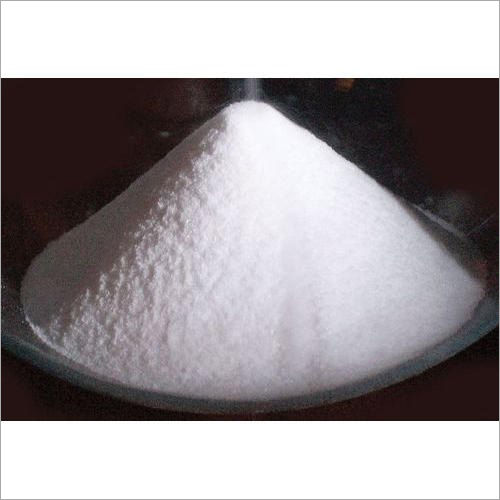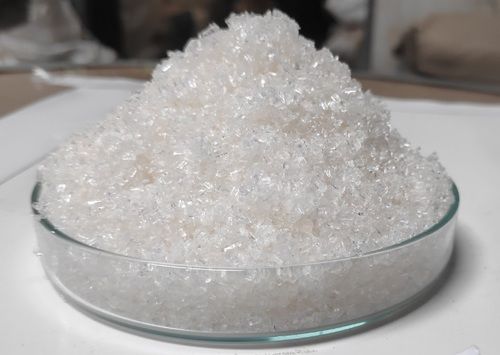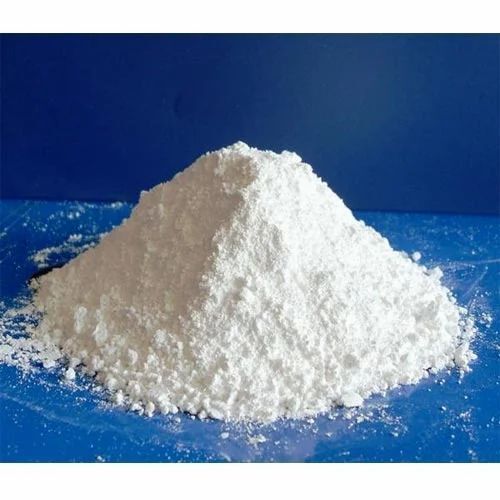Potassium Chloride Crystal
30 INR/Kilograms
Product Details:
X
Potassium Chloride Crystal Price And Quantity
- 30 INR/Kilograms
- 100 Kilograms
Potassium Chloride Crystal Trade Information
- 50 Kilograms Per Month
- 4-5 Days
- All India
Product Description
We consider each and every requirement of research industry during the manufacturing and supplying Potassium Chloride Crystal. Offered range is used as the additives in many industries. We avail this chemical compound to the customers in fine packaging options and at discounted prices. The range is considered as the best scientific solution that is also used in construction industry with positive effects. This non flammable substance has 770 degree centigrade melting point and 1420 degree centigrade boiling point. It is easily dispersible in alkalis and glycerol. It slightly dilutes in C2H5OH and is completely insoluble in ether. Free from unpleasant smell, its density is 1.984 g/cm3. Standard of this chemical compound has been verified on the basis of its shelf life, particle size, purity, chemical stability and content.
Crystal Potassium Chloride Properties:
1. Other names : Sylvite
2. CAS Number : 7447-40-7
3. Chemical formula : KCl
4. Molar mass : 74.5513 g/mol-1
5. Appearance : white crystalline solid
6. Odor : Odorless
7. Density : 1.984 g/cm3
8. Melting point : 770 degree centigrade
9. Boiling point : 1,420 degree centigrade
10. Solubility in water : 277.7 g/L (0 degree centigrade) ; 339.7 g/L (20 degree centigrade) ; 540.2 g/L (100 degree centigrade)
11. Solubility : Soluble in glycerol and alkalies. Slightly soluble in alcohol Insoluble in ether
12. Solubility in ethanol : 0.00288 g/L (25 degree centigrade)
13. Flash point : Non-flammable
Uses of Potassium Chloride Crystal:
1. Fertilizers: Potassium chloride is a major source of potassium for agricultural fertilizers. Potassium is one of the three primary nutrients essential for plant growth, along with nitrogen and phosphorus. Fertilizers containing potassium chloride help improve crop yield, quality, and resistance to diseases and pests.
2. Food Processing: Potassium chloride is used as a salt substitute in food processing. It is often used in low-sodium or salt-free products for individuals who need to restrict their sodium intake due to health reasons such as hypertension or heart disease. It provides a salty taste without the negative health effects associated with high sodium consumption.
3. Medical Applications: In medicine, potassium chloride is used intravenously for the treatment of potassium deficiencies, particularly in cases of severe hypokalemia (low blood potassium levels). It is also used in oral potassium supplements.
4. Water Treatment: Potassium chloride is used in water treatment processes, particularly for water softening. It is often used in combination with other salts like sodium chloride (salt) in water softeners to remove hardness ions (calcium and magnesium) from water, preventing scale buildup in pipes and appliances.
5. Chemical Industry: Potassium chloride serves as a raw material for the production of various chemicals. It is used in the manufacture of potassium hydroxide (KOH), potassium carbonate (K2CO3), and other potassium compounds, which find applications in industries such as soap making, glass production, and fertilizers.
6. Laboratory Applications: Potassium chloride is commonly used in laboratory settings as a reagent or electrolyte solution. It is used in biochemical and molecular biology experiments, as well as in medical diagnostic tests.
7. De-icing Agent: In regions where snow and ice are common, potassium chloride is sometimes used as a de-icing agent on roads and sidewalks. It helps to melt ice and snow, making surfaces safer for vehicles and pedestrians. However, its use for this purpose is less common compared to sodium chloride (rock salt) due to cost considerations.
Potassium Chloride Crystal FAQ:
1. What is potassium chloride?
Ans: Potassium chloride (KCl) is a chemical compound composed of potassium and chloride ions. It is a white crystalline salt that is soluble in water and widely used in various industrial, agricultural, and medical applications.
2. What are the main uses of potassium chloride?
Ans: Potassium chloride has several important uses, including:
a. Fertilizers: as a source of potassium for plant nutrition.
b. Food processing: as a salt substitute in low-sodium or salt-free products.
c. Medical applications: for treating potassium deficiencies and in oral supplements.
d. Water treatment: for softening water by removing hardness ions.
e. Chemical industry: as a raw material for producing other potassium compounds.
f. Laboratory applications: as a reagent or electrolyte solution.
3. Is potassium chloride safe for consumption?
Ans: Potassium chloride is generally safe for consumption when used appropriately. However, excessive intake can be harmful, especially for individuals with certain medical conditions such as kidney problems or those taking certain medications. It's important to follow recommended dosages and consult healthcare professionals if in doubt.
4. Can potassium chloride be used as a salt substitute?
Ans: Yes, potassium chloride is commonly used as a salt substitute in food processing, especially in products targeted towards individuals who need to limit their sodium intake. It provides a salty taste without the negative health effects associated with high sodium consumption.
5. Are there any side effects of consuming potassium chloride?
Ans: Consuming excessive amounts of potassium chloride can lead to hyperkalemia (high blood potassium levels), which can cause symptoms such as irregular heartbeat, muscle weakness, and even cardiac arrest. Individuals with kidney problems or those taking certain medications (such as potassium-sparing diuretics or ACE inhibitors) should be cautious about potassium intake.
6. How is potassium chloride supplied and stored?
Ans: Potassium chloride is typically supplied as a white crystalline powder or granules. It should be stored in a cool, dry place away from moisture and incompatible materials. Proper ventilation and labeling are important to prevent accidents or misuse.
7. Can potassium chloride be used for de-icing purposes?
Ans: While potassium chloride can be used as a de-icing agent, it is less commonly used for this purpose compared to sodium chloride (rock salt) due to cost considerations. However, it can still be effective in melting ice and snow on roads and sidewalks when applied appropriately.
8. Is potassium chloride environmentally friendly?
Ans: Potassium chloride is generally considered environmentally friendly when used responsibly. However, excessive runoff from agricultural applications can contribute to water pollution, and large spills or releases can have adverse effects on soil and aquatic ecosystems. Proper handling, storage, and disposal practices are important to minimize environmental impact.
Tell us about your requirement

Price:
Quantity
Select Unit
- 50
- 100
- 200
- 250
- 500
- 1000+
Additional detail
Mobile number
Email







 Send Inquiry
Send Inquiry Send SMS
Send SMS Call Me Free
Call Me Free
